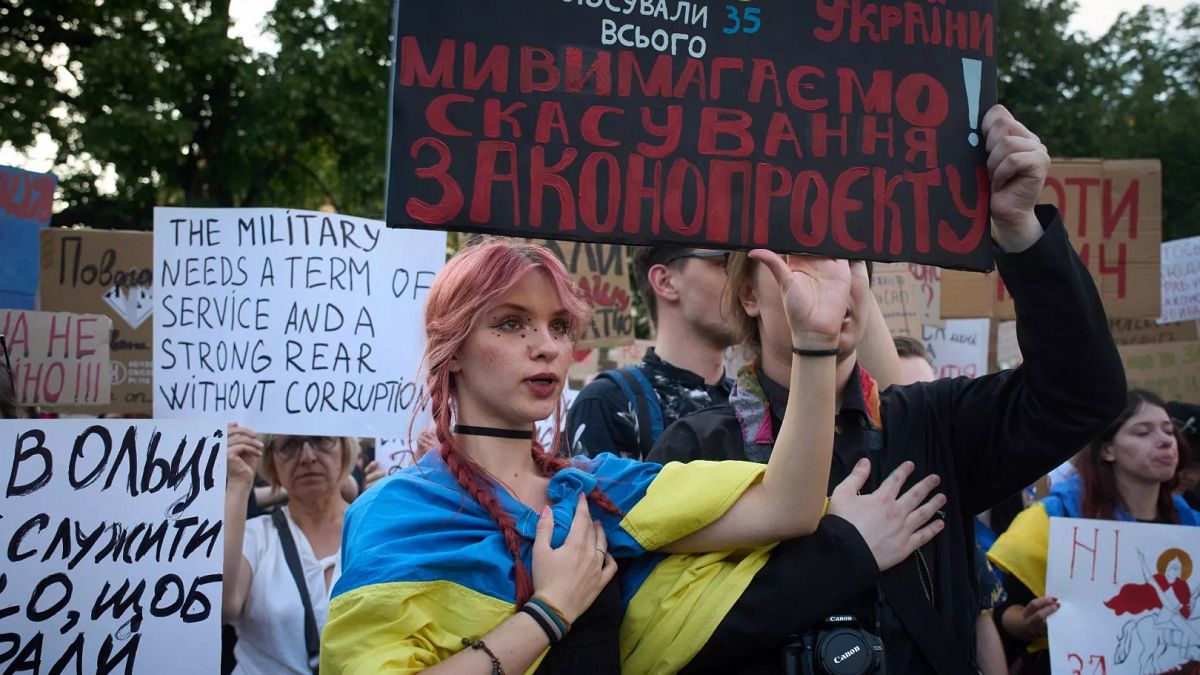

In recent days, there have been several significant developments across the globe that highlight both progress and challenges in various fields. These events span from legislative efforts to enhance governance, international trade negotiations, migration policies, and geopolitical dynamics. Each development brings its own set of opportunities and complexities, illustrating the interconnected nature of our world.
Starting with Ukraine, the nation has taken a definitive step towards bolstering governance by approving a new law aimed at restoring the independence of its anti-corruption watchdogs. This move is pivotal for Ukraine’s objective to align more closely with European Union standards, a critical aspect of its aspirations to join the EU. By emphasizing transparency and accountability, Ukraine seeks to maintain crucial access to Western aid, which remains vital as the country continues to navigate the ongoing challenges of conflict.
In Denmark, a significant shift in migration policy has emerged. By embracing more restrictive rules within a progressive framework, Denmark is setting the stage for a broader EU-wide debate on migration. This policy shift reflects a nuanced approach to balancing national interests with humanitarian responsibilities, indicative of the evolving discourse on migration within the European Union. Such initiatives could potentially influence migration policies across member states, fostering dialogue aimed at finding sustainable and inclusive solutions.
On the economic front, negotiations between the European Union and the United States continue to unfold. French President Emmanuel Macron has underscored the need for ongoing discussions to finalize a comprehensive trade deal. Despite the progress made, Macron advocates for additional negotiation to address concerns and ensure a balanced agreement. Meanwhile, German leaders have expressed cautious optimism, acknowledging potential economic growth limitations while highlighting the importance of avoiding further escalation in trade tensions.
Turning our attention to Southeast Asia, a fragile ceasefire between Thailand and Cambodia has been reaffirmed following a period of intense clashes. The recent conflict, marked by tragic loss of life and large-scale displacement, underscores the necessity for ongoing diplomatic efforts to ensure stability and peace in the region. The commitment to maintaining the ceasefire offers a chance for healing and constructive dialogue, creating a pathway toward long-term reconciliation.
In South America, trade relations are under the lens as Brazilian President Luiz Inácio Lula da Silva responds assertively to proposed tariffs from former U.S. President Donald Trump. With tariffs set to take effect soon, Lula has made it clear that Brazil will stand firm in upholding its economic interests. This situation reflects broader global trade dynamics, where nations navigate complex relationships and aim to defend their positions on the international stage.
On security and human rights, the European Union is preparing to implement a new biometrics entry-exit system for non-EU visitors from October. This advancement in border control technology is reflective of ongoing efforts to enhance security while facilitating legitimate travel. The use of fingerprinting and facial recognition is poised to streamline entry processes, presenting a modern approach to border management that balances efficiency with the right to privacy.
Meanwhile, in Myanmar, the military junta has announced the end of a longstanding state of emergency in anticipation of upcoming elections. However, this development is met with skepticism, as opposition groups have pledged to boycott polls they deem fraudulent. International voices are calling for a fair electoral process, as the nation grapples with the aftermath of a prolonged civil conflict. The global community watches closely, hoping for a resolution that honors democratic principles.
In summary, these global developments underscore the dynamic landscape of international affairs. From governance reforms and migration debates to trade negotiations and peace efforts, each story is a reminder of the intricate tapestry of challenges and opportunities that define our world. Through mindful engagement, nations continue to strive for progress, seeking solutions that promote peace, prosperity, and unity.
Source: {link}
